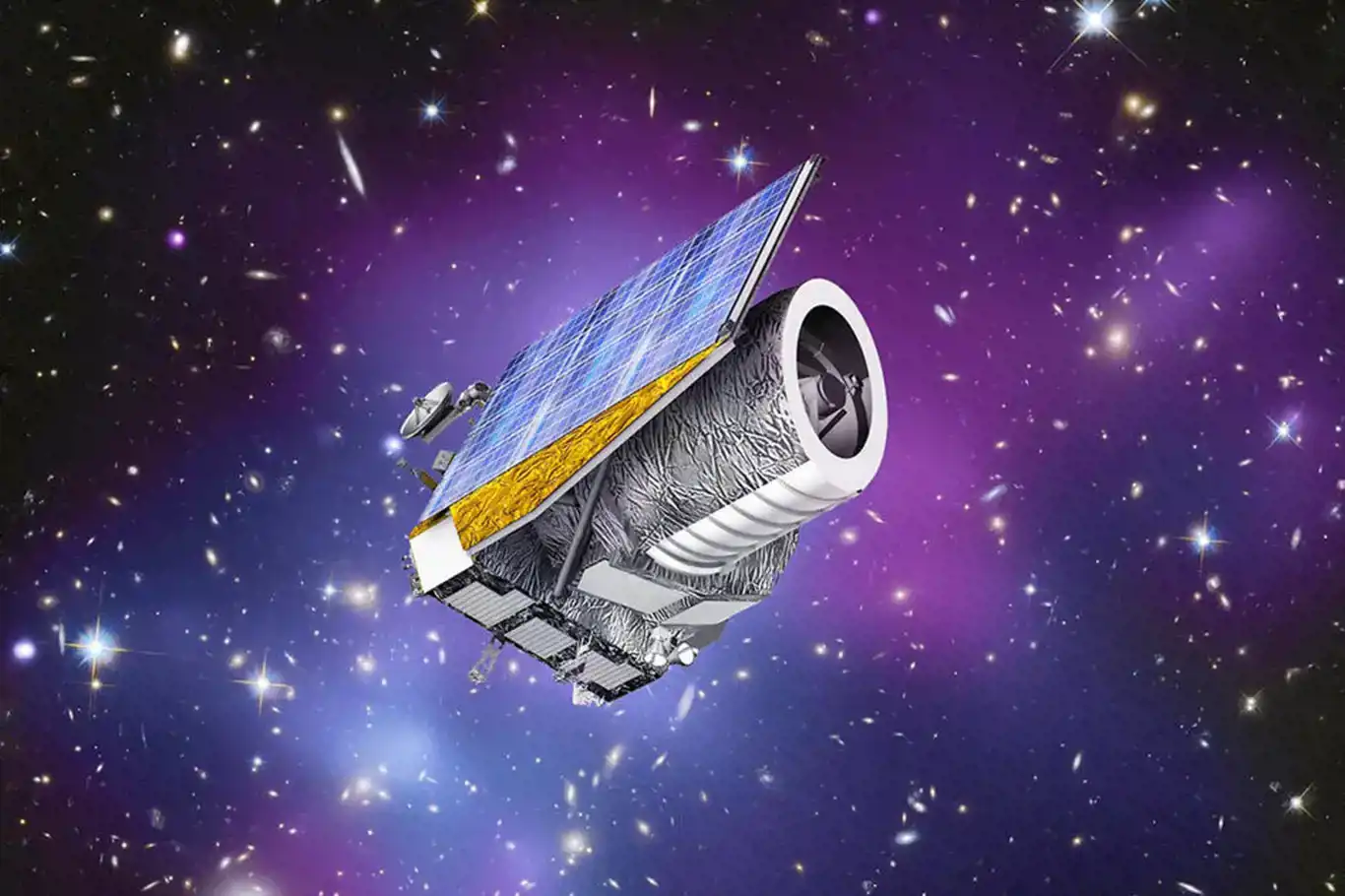Euclid space telescope launched on mission to unravel dark universe


The European satellite Agency (ESA) has launched the Euclid satellite telescope on a game-changing six-year mission to solve the riddles of dark energy and dark matter while producing the most thorough map of the cosmos to date.
The Euclid observatory was successfully launched by SpaceX and is now traveling to its final destination, which is 1.5 million kilometers away near the Webb Space Telescope. After traveling for almost a month to get to its destination, it will need to prepare for another two months before starting its extensive study in the upcoming fall.
Flight controllers in Germany celebrated success nearly an hour into the launch, expressing their excitement and jubilation as the telescope established communication, confirming a seamless lift-off.
Euclid, named after the ancient Greek mathematician, will meticulously study billions of galaxies across over one-third of the sky. By precisely identifying and examining the position and structure of galaxies up to 10 billion light-years away, scientists hope to gain valuable insights into the nature of dark energy and dark matter, which constitute the majority of the universe and drive its expansion. Currently, only five percent of the universe is understood, encompassing stars, planets, and ourselves.
The highly anticipated 3D map of the cosmos produced by Euclid will span both space and time, aiming to elucidate the evolution of the dark universe and the reasons behind its accelerating expansion. The project's lead scientist expressed confidence that Euclid would measure dark energy and dark matter with unprecedented precision.
Euclid stands at an impressive height of 4.7 meters and boasts a width nearly as substantial. Equipped with a 1.2-meter telescope and two advanced scientific instruments capable of observing both visible light and near-infrared wavelengths, the telescope is accompanied by an expansive sun-shield designed to maintain the optimal temperature required for its sensitive systems.
The Euclid space telescope's mission holds great promise, as it embarks on a cosmic journey to unlock the secrets of the dark universe and deepen our understanding of the profound forces shaping the vast expanse of space. (ILKHA)
LEGAL WARNING: All rights of the published news, photos and videos are reserved by İlke Haber Ajansı Basın Yayın San. Trade A.Ş. Under no circumstances can all or part of the news, photos and videos be used without a written contract or subscription.
xAI owner Elon Musk said that for now, free artificial intelligence video creation will be available to US users.
Iran marked a major milestone in its space program on Friday with the successful launch of its domestically-built research and telecommunications satellite, Nahid-2, into orbit aboard a Russian Soyuz rocket from the Vostochny Cosmodrome.
Microsoft has sounded the alarm on a series of active cyberattacks exploiting critical vulnerabilities in its SharePoint Server software, widely used by businesses, government agencies, and organizations worldwide.
Türkiye’s biggest technology event, the SDN Tech Expo, officially opened its doors at the Yenikapı Eurasia Show and Art Centre in Istanbul, drawing thousands of visitors, tech enthusiasts, and industry professionals.